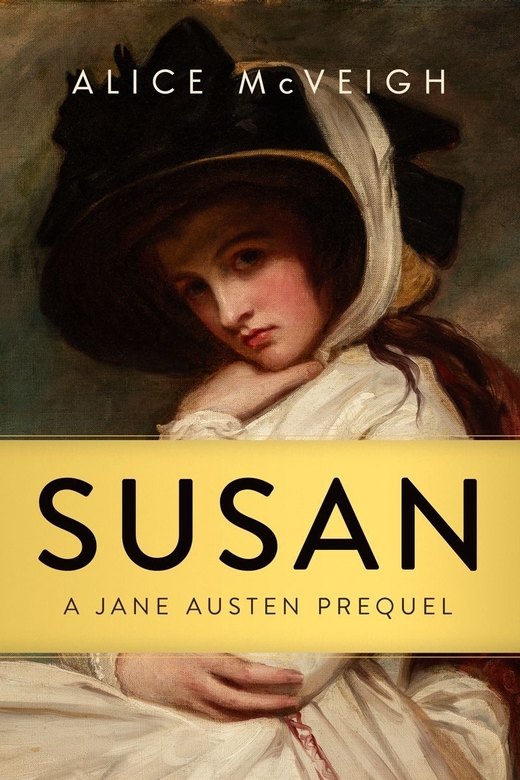
Fans of Jane Austen and Victorian literature will be easily enraptured by Susan: A Jane Austen Prequel by Alice McVeigh. Honoring the original voice of characters more than two centuries old, and capturing the subtle tension and emotional complexity of youthful independence, this stylistic gem is an ambitious and memorable homage.
The novel delves into the untold story of one of Austen’s most original antagonists – Lady Susan – in her early years as a disruptive force. After her insolence gets her kicked out of a boarding school, it is decided that she will be sent away to become more “tractable.” Instead, she brings her unique brand of mischievous disruption to the sleepy countryside of Kent, subsequently lacing this tale with wit and splashes of dialogic brilliance.
While Susan’s bold personality makes her a unique attraction in her new home, it also means an endless negotiation for respectability, obedience, and a “good” marriage, none of which she is particularly concerned with. She seems to thrive on conflict and drama, placing herself in the center of many delicate battles, yet coming out mostly unscathed. The dynamics of small-town life, underpinned by profound thematic exploration – belonging, performance, self-reflection, love, envy, and manipulation – give this novel a wise feel, despite the seemingly surface-level plot.
Like the beloved characters that populated Austen’s novels, young Lady Susan is feisty and ferociously intelligent, but there is also a well-crafted innocence that slowly falls away as this immersive story plays out. Those who have read Austen’s other work will recognize some familiar characters, younger and notably different, prior to how most fans will remember them from Pride and Prejudice and Emma, yet McVeigh’s characterizations are spot on, evidence of her serious devotion to the source material. The occasional references to “the Bennet girls,” “Lady Catherine’s eminent nephew,” and other elements of Austen’s world solidifies this creative work as a part of that overlapping history.
The most impressive part of Austen’s body of work is the marvelous skill she had with language – the playful and whimsical conversations, or the seemingly paradoxical phrases that bend the ear to show off a character’s sharp tongue – so that is an immensely tall order for a modern writer. In this 21st century take on that time period, McVeigh achieves a similar level of polish and tongue-in-cheek style: “As to that, child, if you are too nice, you might never marry at all,” and many other lines are so subtle that a less careful reader will miss them, but these unexpected turns are where the writing shines.
From an editorial perspective, there are very few mistakes or areas that require tightening up. Some turns of phrase, however, could almost be described as being too smart for their own good, or require more mental gymnastics than is necessary: “She turned, exhibiting a very pretty profile, and a very pretty confusion as well.” The syntax and formal nature of early 18th-century prose is mirrored almost perfectly in this novel, but there are occasional sentences that demand to be re-read, and don’t land quite as solidly as they should.
That said, McVeigh has set a strong foundation for a stunning six-book series, and has the writing chops to deliver a hugely challenging undertaking, which will thrill fans of Jane Austen, and historical fiction fans in general.
Book Links
STAR RATING
Design
Content
Editing
Get an Editorial Review | Get Amazon Sales & Reviews | Get Edited | Publish Your Book | Enter the SPR Book Awards | Other Marketing Services























Leave A Comment